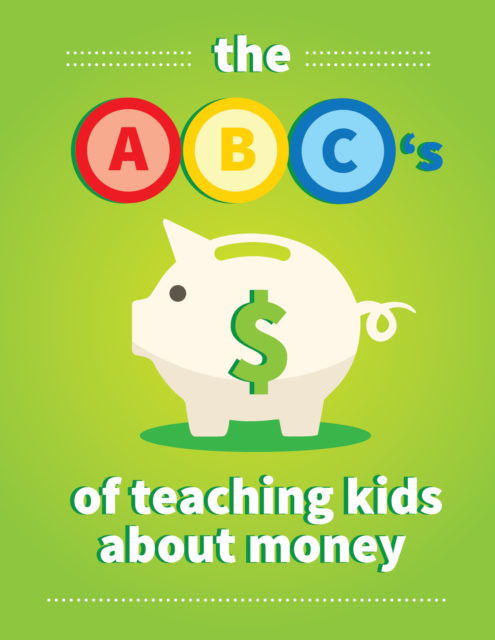The ABC’s of Teaching Kids about Money

Families generally have a few questions about money and how to introduce it to their kids. Do you start an allowance? Should they save? Establishing conversations about money early can help develop lifelong financial skills. Here are a few things to consider before starting the conversation:
Know your audience
Whether learning multiplication tables or the Pythagorean Theorem, kids have the ability to understand money as long as it’s age appropriate. According to Bank of America, children begin to grasp the value of a dollar and the concept of saving around the fourth grade. By middle school, they understand that their wants have a value and cost something. Once they get into their teens, they have a better grasp of how much things cost and how to manage it.
How will they earn it?
To learn about money, your child has to earn some. Think about how they should earn it. Should it be a monthly allowance? If so, is it based on chores? Grades? There is no right or wrong approach, but it is important to let your kids understand why they are earning money and the philosophy behind your expectations.
How will they spend it?
Understanding how your child plans to spend his/her money can help you decide how much they should earn. Young children normally want to use money for discretionary items like toys and games. By the teen years, expenses gear towards activities and hobbies. Some parents ask their teens to be responsible for entertainment while the parents pay for after-school activities. Another approach is having the teen pay a percentage of all their expenses.
How will they save it?
According to Consolidated Credit Counseling Services, 44% of families require children to save at least part of their allowances. But, whether or not you decide to give an allowance, saving is an important lesson. It can help children understand delayed gratification and how to work for what they want. When a child asks for something, discuss how they can earn it over time and start setting goals.
How can they use it to help?
Although a child’s budget is limited, it’s a great idea to recommend setting aside a portion of his/her income for charities. If this aligns with your family’s values, consider discussing potential charities and how their money can make a difference. As they get older you can explain how donating not only helps other people, but can also help with personal finances such as tax breaks.
Establish limitations
Are there certain things you don’t want your child purchasing? If so, set limitations on what they can and cannot buy. Start by creating a list of items that are strictly off-limits based on house rules you already have in place.
It’s great to prepare your children at any age for financial success. Learning how to earn, manage and save money will help them as they develop into adults with bills and responsibilities. By preparing them, you are helping them achieve success.
Sometimes, however, life throws things your way that you are not prepared for. Is your family experiencing unexpected medical bills or severe home improvement issues? These are things that can blindside the most prepared households and leave them strapped for cash. TitleBucks® is always here to put extra bucks in your pocket when you need it. We offer same day cash along with competitive rates. All you need to do is fill out the form at the top of the page to get started!
Categories: Money-Saving Tips Planning
